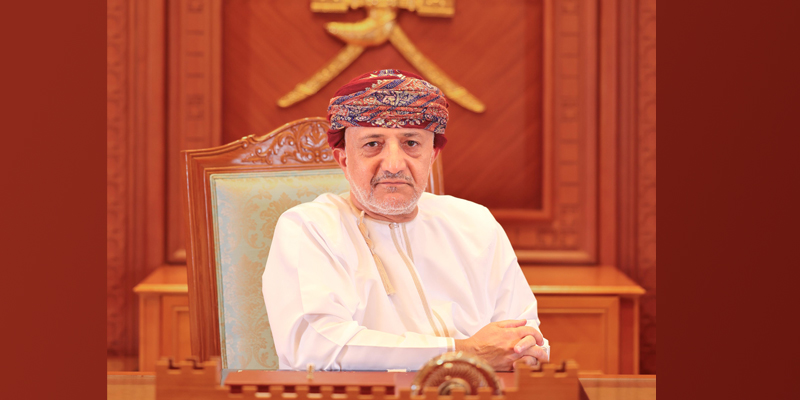
09 Apr Interview with H.E. Salim M. Almahruqi, Minister of Heritage and Tourism, Sultanate of Oman
JT: How is the Ministry aligning its strategies with Vision 2040 to develop tourism and preserve heritage as pillars of national progress?
Almahruqi: Vision 2040 charts Oman’s roadmap to reduce oil dependence by focusing on economic diversification, job creation, and leveraging national resources to enhance global competitiveness. In tourism, the goal is to boost GDP contribution and job creation by encouraging local and foreign investment and launching targeted programs. By 2040, we aim for tourism to contribute around 10% to GDP and generate 5 to 8 million jobs for both Omanis and expatriates. Investment in the sector is expected to grow significantly. Our post-COVID-19 recovery, especially in 2023, has been swift, in line with broader regional trends. Oman is well-positioned to showcase its culture, heritage, landscapes, and capacity to deliver meaningful visitor experiences. As sustainability becomes increasingly important to travelers, it continues to guide our approach to sector development and management.
JT: How does the Ministry balance the preservation of Oman’s heritage with the need to modernize and expand tourism facilities in line with Vision 2040?
Almahruqi: Our strategy has always been to balance modernity with authenticity—a challenge in today’s fast-changing world, but one we’ve managed successfully. In Oman, heritage goes beyond monuments; it includes the values and principles that define our national identity. Our geographical position has shaped over 7,000 years of cultural exchange with East Africa, Europe, and China, leaving a lasting imprint on Omani identity. While globalization influences younger generations, we rely on values rooted in education and governance to preserve this heritage. Through museums and other platforms, we ensure both locals and visitors can connect with our traditions—despite the challenges posed by digital media and open communication. We remain confident in maintaining this delicate balance between modernization and cultural preservation.
JT: What initiatives is the Ministry undertaking to enhance Oman’s appeal as a global destination and to promote sustainable tourism practices?
Almahruqi: The Ministry is focused on ensuring local communities benefit directly from tourism by involving them in decision-making, creating job opportunities, and promoting in-country value. Our policies prioritize waste management, resource preservation, and alignment with international sustainability protocols. Oman is committed to achieving net-zero emissions by 2050, with tourism playing a key role. As tourism accounts for 8% of global emissions, we are actively working to reduce our footprint. Projects like Sustainable City Yiti—a fully green community powered by renewable energy and efficient waste systems—illustrate this commitment. The upcoming botanical garden will also showcase how we integrate natural heritage conservation with tourism development.
JT: As Expo 2025 in Osaka approaches, what opportunities does it present for Oman to elevate its global profile and strengthen ties with tourists and investors?
Almahruqi: I’ve had the privilege of visiting Japan twice, including accompanying His Majesty during his time as Minister. Our nations share a strong respect for heritage and tradition, and Japan offers a model for balancing modernity with cultural identity. We’re opening a regional office in Singapore to expand across Asia, including Japan, Australia, and New Zealand. Strengthening air connectivity is key—Japan can be linked to Oman as part of broader travel routes. We aim to attract more Japanese visitors and investment. Notably, a Japanese hospitality group is set to begin operations in the Mouj area within the next two to three years.
JT: How does the Ministry envision leveraging the Expo to strengthen Oman-Japan relations and promote tourism partnerships?
Almahruqi: We aim to sustain the momentum generated by the Expo through long-term initiatives. While the event itself is temporary, its impact won’t be. We’re appointing representatives—starting in Madrid and then expanding to Singapore and Japan—to promote Oman continuously. We’ll keep using media, international showcases, and special publications to highlight Oman. Europe remains a key market for us, and we’re looking to replicate that success in Japan.
JT: What are the Ministry’s key priorities for advancing Oman’s tourism sector and safeguarding its cultural heritage under Vision 2040?
Almahruqi: Oman offers compelling incentives for investors and stands out in the region for its diverse landscapes, heritage, and culture. We welcome increased Japanese investment, building on a long-standing trade relationship. Beyond commerce, Japan has played a key role in archaeology here—a Japanese team has worked in Oman for over 30 years, renowned for their precision. They’re among 35 international teams contributing to our cultural preservation. Our upcoming botanical garden, opening in March, is one of many unique attractions. The Hajar Mountains near Nizwa and the historic maritime city of Sur—set to host a new maritime museum within four years—are also must-visits. We’re developing Masirah Island to harness its strategic Indian Ocean location, and the Strait of Hormuz in northern Oman offers another exceptional, high-quality tourism experience.
JT: Do you have any closing remarks for our readers who are considering visiting or investing in Oman?
Almahruqi: Oman, as part of the Gulf and Arab world, is undergoing significant transformation, particularly in tourism. The region is investing heavily in capacity building to compete with traditional markets in Europe and the Far East. Oman combines rich history with authentic experiences and aims to become a major global destination. Tourism is more than an economic driver—it’s a bridge for peace and understanding between nations. Our region, once marked by polarization, now aspires to play a greater role in global tourism. Post-COVID recovery in the Gulf has been strong, and we hope this positive trend continues.
